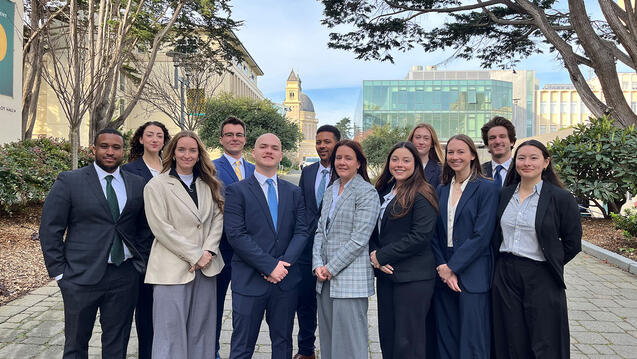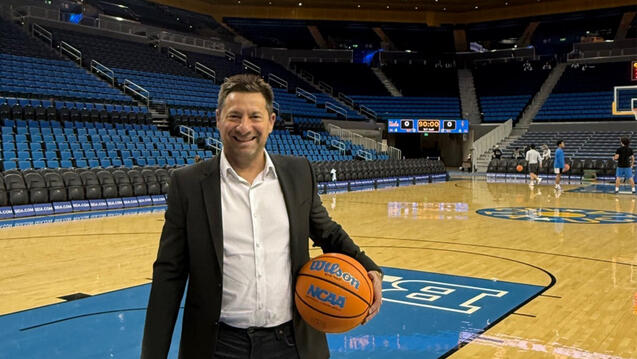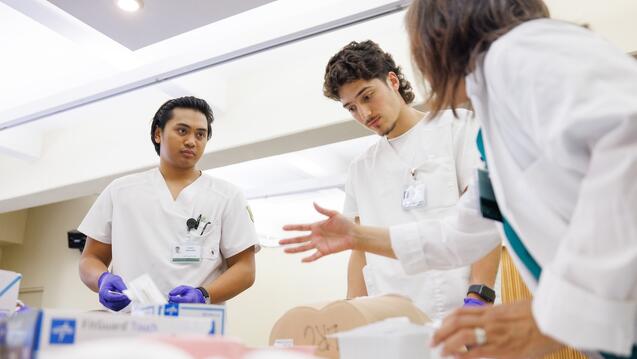New Life for Leftovers
Over 500 pounds of food that used to be discarded by USF's cafeteria every week now feeds over 200 San Franciscans in need, thanks to a growing group of student activists on a rescue mission.
"The food is cooked and has never been touched," says Kacie LaGuire '19 who was among a handful of socially conscious students who in 2014 noticed the amount of prepared food the kitchen throws out as surplus. “Yet we know that one in four San Franciscans face hunger — we all see it every day.”
Soon after, the students established the USF chapter of the Food Recovery Network (FRN), a national nonprofit with the dual goals of feeding the hungry and reducing wasted food's 3.3 billion ton carbon footprint — which, if it were a country, would make it the third largest CO2 emitter behind China and the U.S.
A great way to volunteer
Since its launch four years ago, the chapter has grown to almost 130 student volunteers. Three nights a week they swoop in and pick up hot trays of chicken quesadillas, tortellini, pizza, and other leftovers from Market Cafe (the main dining facility on campus), delivering the food to lines of low-income residents in San Francisco’s Mission and Tenderloin neighborhoods. They serve the food at late-night church services put on by nonprofit partner San Francisco Night Ministry — which, in addition to serving hot meals, also provides free crisis intervention and counseling individuals in the city who are homeless, disabled, or struggling with addiction.
“First-time volunteers are often shocked by how much food goes wasted, and also by the conditions they see in Mission and Tenderloin,” says LaGuire, a media studies major who serves as FRN’s spokesperson. “Yet they quickly realize what a great way to volunteer it is, as you immediately see the impact you are making.”
Thanks to support from Bon Appetit (the universities food service provider), which boxes and wraps the food for transit, LaGuire and the other FRN members serve about 225 people a week.
“It used to be just peanut butter jelly sandwiches,” says Night Ministry's Monica Ortiz, who did the job on her own until USF's FRN chapter came on board. “Now not only do the students provide warm, nutritious meals to people who often haven’t eaten for days, they are also there talking with them and getting to know them. They give people hope.”
Know someone with a powerful USF story? Let us know! usfnews@usfca.edu Twitter @usfcanews


